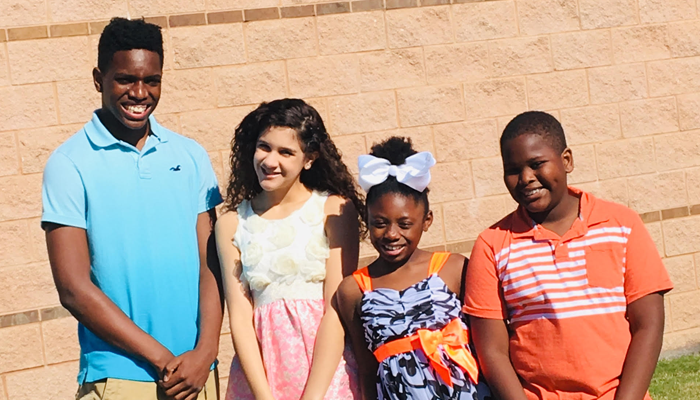My wife, Laurie, and I became parents by way of transracial adoption nearly 15 years ago, so we like to consider ourselves seasoned pros when it comes to weird or inappropriate comments about our family or race in general. “We’ve heard it all,” we tell young parents who are considering adoption or recently became parents. “Here are a few of the good ones.” Then we list some of the humdingers we’ve heard.
“Are those your kids?” is pretty typical.
“Is your wife black?” people ask me, which I find amusing because my kids don’t look mixed.
When I share these examples with other adoptive families, we all have a good laugh—except for the occasional parent giving a terrified, wide-eyed look.
Of course, we haven’t heard it all. And while I’d like to think I’m ready for anything at a moment’s notice, I can still be caught off guard by a statement or conversation. I might struggle to remember some of my reliable go-to phrases, and I can still leave the interaction feeling utterly defeated. “I should have said…,” I’ll think, hours or days later, when a good comeback finally comes to me.
This happened a while back, in a previous job that involved working remotely. I saw my supervisor, an older fellow named Hank, only a few times a year. On one of the rare mornings when we were both at the office, I asked if he wanted to get lunch. “Nah,” he said, “I don’t like to eat out much. Too many black people working in the kitchen.”
Our conversation up to this point had had no racial content, so I was dumbfounded. “Um,” I said. “What?”
“Oh, yeah,” Hank continued. “They spit in your food.”
“What?” I said. I’m sure my voice had jumped an octave. “Have you ever seen anyone spit in your food?”
“I don’t have to see it,” he said. “Just look at me.”
I looked him up and down, wondering what kind of response he was looking for. I see an average-looking, ignorant old man in a flannel shirt, I thought. But then I remembered he was my boss, so I said nothing.
“Yeah,” he said, as if I’d given him the answer he wanted, “They see an old white guy and I know what they’re thinking.”
“Hank, I don’t think…I mean…” I was stumbling over my words. “Why would….”
He showed no signs he realized how upset I was becoming. Oblivious to the terrified, wide-eyed look I was giving, he continued. “Now, don’t get me wrong; it’s not just black people that do this. Plenty of white people work in the kitchen, and they spit in the food, too.”
“Hank, I have no idea what you’re talking about,” was all I could say.
I realized this conversation would only continue to get worse, and made my way back to my office. I closed my door, sat in my chair, and looked at a picture of my kids that I had on my desk. Hank had commented on that picture a few months back. He knows I have black children, I thought. I felt like I’d failed them.
I tried to get back to work, but couldn’t concentrate. The conversation had lasted less than one minute, yet my heart was racing like I’d just run a mile. So I left the office and went for a walk. When I reached a safe distance from the building, I called Laurie and told her about the conversation.
“What are you going to do?” she asked. “Call human resources?”
I considered this for a moment. “He’s an executive. The HR director reports to him. Plus, I’m not sure he said anything that could get him fired. He didn’t use any slurs. If I reported it, he’d probably just have it out for me.”
“That’s all true,” she said. “And I honestly think you’re right; there’s nothing more you could have said. It only would have gone further downhill.”
“Yeah,” I said with a sigh, “but that doesn’t make me feel any better.”
For months, I ran the conversation over and over in my head. While I had no trouble coming up with better things I could have said, I kept anticipating that Hank’s responses would have become more offensive. So I wouldn’t change any of my reactions. Ultimately, I decided I didn’t want to wait for another similar conversation with Hank, so I began planning my exit strategy. Soon enough, I got a job offer and gave notice.
Since that interaction, however, the message I give other adoptive and transracial families has changed. I still advise them to be prepared and laugh off the funnier statements. But I also share the conversation with Hank as an example of one of the more offensive interactions I’ve had, and that it’s impossible to be prepared for everything. I have learned that we can’t take on every racist thing we hear, but that we must stay informed and think through how we want to handle racism when we are confronted with it. Especially when it comes without warning and from people we thought we could trust!



